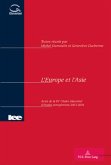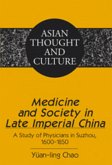This study analyses the economic thought in Japan in the critical period from 1930 to 1945. It pays particular attention to how the contemporary Japanese received European and American ideas about the transformation of capitalism from a liberal to controlled or managed economy, and how they applied them to the economic system in Japan. They were interested in English thoughts for the reform of capitalism by the evolutionary ways: those of J. M. Keynes in his The End of Laissez-Faire, reformism of G.D.H. Cole and others. German thought of W. Rathenau and W. Sombart attracted the attention of reform-minded Japanese. The influence of National Socialism on them was far-reaching. This study analyses in detail how they accepted Nazism and amalgamated it into a traditional style of totalitarianism under the emperor system.
Bitte wählen Sie Ihr Anliegen aus.
Rechnungen
Retourenschein anfordern
Bestellstatus
Storno








